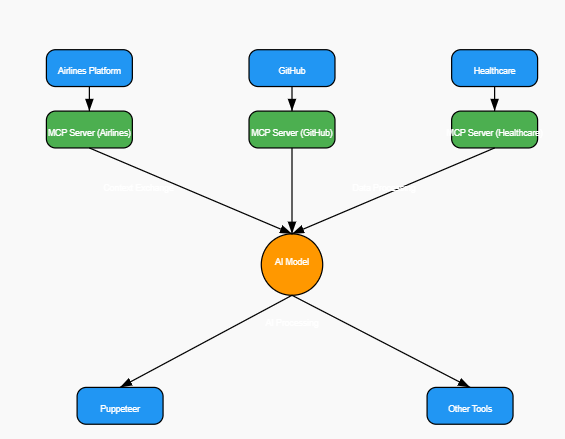
API development is a complex and time-consuming task. It involves a lot of steps like planning, architecture design, implementation, testing, etc and it doesn’t end over there, you need to keep the APIs updated so that it meets the user requirements as well as meets the latest security standards. But after the introduction of low code tools like Meta API, the complexity of projects has been reduced a lot. You now don’t need the technical expertise that you needed when going with custom development or homemade API.
Meta API is a SaaS platform that allows you to connect, integrate and automate hundreds of APIs into a single API. You can say that Meta API is an API for APIs ;) It comes with a Javascript/Typescript editor that allows you to perform custom development and build new functionalities. You can create different Spells or use brewed Spells to help your API developments. Meta API also takes care of things like different environments (dev and prod), monitoring, scalability, etc.

So, in this article, we’re going to compare the Homemade API with Meta API in factors like time, budget, etc.
Development Time
Homemade API takes a lot of time to develop. For example, you’ll have to start from scratch like server setup, environment setup, then move ahead with the installation of dependencies, etc., and then the development starts.
On the other hand, with Meta API you don’t have to worry about the server setup, environments, or even the storage, you can directly start with the Spell development and work on your project. You can directly start with our Javascript/Typescript-based editor and start working on your APIs. You can also choose from more than 500 connectors to connect third-party APIs that can make your development a lot easier.
Features of Javascript/Typescript Code Editor
- Syntax checking
- Map view
- In-built console
- Separate view for payloads
- Install dependencies with just one click
Technical Expertise Required
Homemade API will need a team of at least four members to get the project into the development stage and then to production. Why? Because you’ll need someone to handle all the server stuff which is called DevOps, then you’ll need at least two developers who can create API, after that, you’ll need someone who can set up the environment for your developed APIs on the server. Too much hassle right?
With Meta API, you only need to focus on your code so that you can single-handedly complete your API development and quickly move it to the production environment. We also provide you with the development environment so that you can test your API very easily and be more confident about the APIs you have created.
Money/Budget is always a concern in any project and Homemade APIs can be very expensive depending on the complexity of the project and the use case. You not only need to spend on the servers but also on developers since you’ll need multiple expertise.

On the other hand, Meta API reduces the development cost a lot since you don’t need to handle stuff like servers, deployment, monitoring, etc. On average if you talk about the Homemade API, it’ll cost cost you around $20,000 with a recurring cost of at least $2000-$3000 per month. While if you choose Meta API, the pricing starts at $24 per month.
API Maintenance and Versioning
API maintenance and versioning can be a difficult task especially when you’re working on a complex project. But before moving forward let’s first try to understand why versioning is important. First of all, versioning allows the clients to continue using the existing version, and apart from that, in case of any error/bug, you can easily revert it back. It also allows you to track all the changes in your code.
The versioning in the Meta API allows you to track all the possible versions in the Dev as well as the Production environment.
If you look at the above screenshot, I recently created a Reddit-Discord bot and I can easily track all the changes in the Version History section and also create a separate version for a new feature. It also comes with a diff viewer that you can use to see all the changes in your code.
On the other hand, Homemade APIs by default don’t come with all these things. But to achieve the same “version and deploy” ease, you need to implement some CI/CD stuff that is always time-consuming and boring to do. For example, for Homemade API you not only need to have the knowledge of API development, but you also need to learn things like CI/CD, Git, etc. On top of that you’ll need to learn the use of Github, Gitlab, or any version control software. While Meta API does these things for you automatically with just a click of a button.
Reporting and Monitoring
If you’re going with custom API development or Homemade APIs by default you won’t be able to monitor the API status like failure rate, response times, latency, etc. You’ll need to have expertise in using tools like Prometheus, Grafana, API Fortress, etc. You’ll also need to spend a fortune to hire a specialist for those technologies if you don’t want to learn them by yourself which will make the project more expensive as well as time taking.
While on the other hand, we have created a separate section for logs in Meta API which is completely real-time and will provide you with all the required data for debugging purposes.
Features of Log Viewer in Meta API
- Real-time
- Allows you to check the error messages.
- User-friendly UI
- Allows you to filter the data by environment, error, and dates.
Customization Options
When you’re working on Homemade APIs, you’re free to use code editors like Atom, Sublime Text, Brackets, or VS Code. These code editors come with their own extension/plugin marketplace that you can use to ease your life. For example, VS Code automatically beautifies your code and has a syntax highlighter, you can even choose the theme and customize it as per your preference. But Meta API’s code editor is a bit boring, you just have a very basic code editor that you’re forced to use and it can only check for syntactical errors.
Security
Security can be a tricky part when you’re working on your APIs. In Homemade APIs, you need to make sure you authorize all the requests and the credentials need to be stored in a very secure manner. For example, even for authentication, you’ll have to work a lot like validating requests, verifying the credentials, authorizing the token, etc.
Meta API allows you to create API keys for each of your Spells and use them for the Spell APIs. You just need to pass the API key in the header or as a query param and the rest of the things will be handled by our platform. Another benefit of Meta API is that it automatically deletes all the `console.log()` data. So for example, let’s say you have printed your API keys or some private information then it’ll automatically get deleted after one week.
You can also filter the IPs on Spells. Let’s say you created a Spell and only your home or office IPs can execute those Spells. You can easily do that using Meta API and limit the IPs that can execute your Spells. Brute force is another headache for API developers. With Meta API, you can easily rate limit your APIs to avoid the Brute force attacks on your Spells.
Reusability and Robustness
Reusability depends a lot on the coding style in Homegrown APIs. But for a very complex project, it can get extremely difficult to make it reusable as a lot of modules don’t share the same properties.
Meta API allows you to combine multiple Spells into one making other Spells reusable. You don’t have to worry about the code and other stuff. If you want you can even use a Spell as a template for the next spell by just duplicating it.
The APIs built using Meta API are also robust in nature. This means, they’re strong and you can easily share the component of one Spell with another like credentials, storage, etc helping the API developers in different aspects of API development.
Debugging
Debugging can be a little hectic process but if you know the right way you can easily debug your application. Homemade API wins here because you have the flexibility to use a lot of third-party applications like Node inspector, ironNode, etc. and you can bend the application as you want to. While Meta API provides you with a very basic level of debugging.
Final Words
With Meta API, you can easily focus on the development of your project rather than worrying about things like deployment, versioning, monitoring, etc. Not only that, but you can use ready-to-use Spells and connectors to save your development time and reduce the complexity. So why not get started?
Originally published at https://blog.meta-api.io.







